Magnesium Deficiency Symptoms
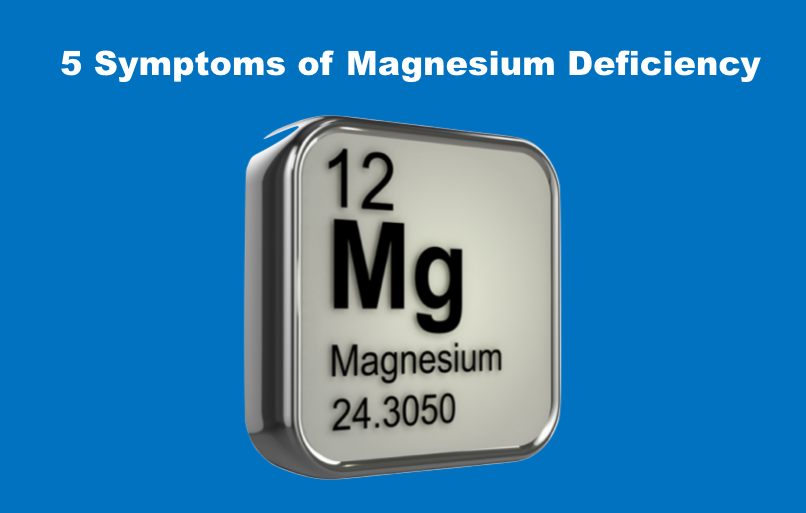
Do you suffer from muscular pain? Muscle spasms or muscle cramps? Does your eyelid twitch uncontrollably at times? These symptoms could all be related to a deficiency in magnesium.
Magnesium is a very important mineral and it’s used by the body in over 300 physiological processes, however, a huge percentage of people don’t consume enough foods high in magnesium so they are deficient.
Below we’ll cover the top 5 Magnesium deficiency symptoms:
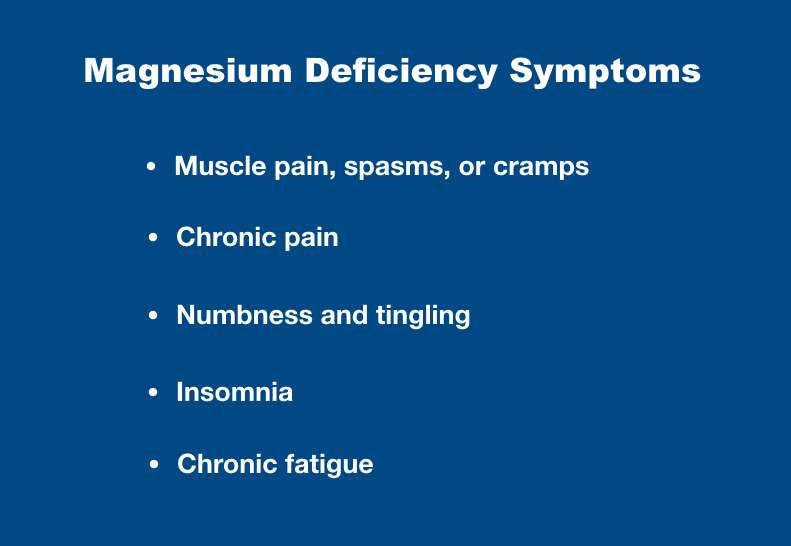
Muscular Pain, Spams, & Cramps

Magnesium plays a huge role in muscle contraction. When you’re deficient in magnesium, your muscle fibers can’t contract synchronously and some contractions may be weaker than others. This can lead to muscle tension, muscle spasms and cramps, which can lead to pain.
You’ve probably seen someone whose eyelid twitches or maybe even had it yourself. That’s a common symptom of Magnesium deficiency. You can have muscle cramps anywhere but they are most common on your legs.
The best form of magnesium for muscle cramps and muscle spasms is Magnesium Glycinate which I’ll discuss later in this article.
Chronic Pain
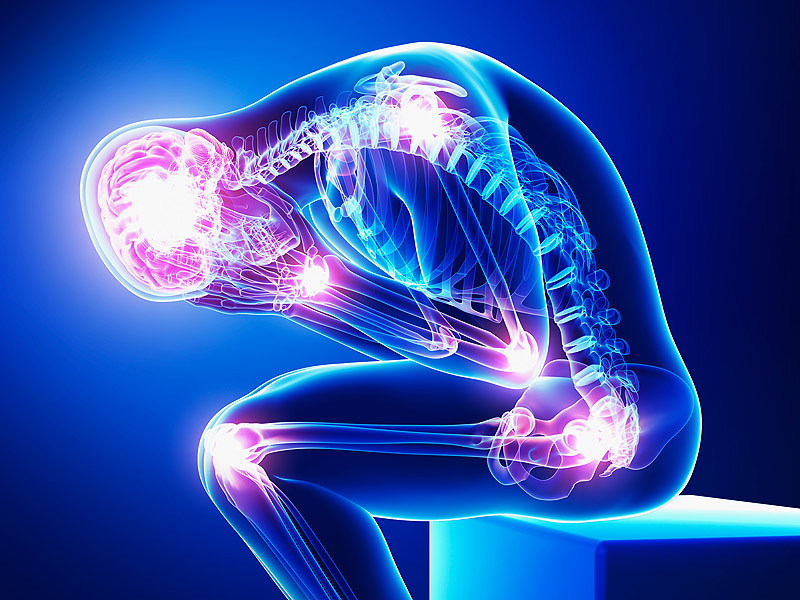
With low levels of Magnesium, your nervous system can become more sensitive to stimuli. The way you handle stress can play a major role in how that stress transfers to physical pain.
If you stress out very often, that can lead to more muscle tension and chronic muscular pain.
Magnesium can help because it has a calming effect, which can help you decrease your stress levels, muscle tension, and leads to less chronic pain.
Numbness & Tingling (Nerve Symptoms)

Numbness and tingling in the hands and feet could be a sign of nerve issues. Doctors most often relate numbness and tingling to a pinched nerve, so that has to be ruled out first.
If a pinched nerve is ruled out, you then have to look at your Magnesium levels since the mineral plays a big role in the transmission of nerve impulses.
An example of a condition where a pinched nerve is not involved would be with peripheral neuropathy, where there is damage to nerves outside the spinal cord like in your hands and feet.
Insomnia

Lack of sleep and anxiety is a big contributor to insomnia and it’s one of the common symptoms seen with a deficiency in Magnesium.
A person low in Magnesium will produce less of a neurotransmitter called GABA (Gamma-amino butyric acid) which is responsible for making you feel relaxed.
Sufficient production of GABA reduces stress and anxiety. Consuming sufficient Magnesium helps you feel less stressed out and anxious when it comes time to go to bed.
Chronic Fatigue

Mitochondria are organelles found in your cells which are responsible for the production of energy. For this reason they are often referred to as the cell’s power house.
They rely on having sufficient amounts of Magnesium available to produce energy so when you’re deficient, you may feel like you’re constantly fatigued.
If you feel like you’re constantly fatigued, regardless of the amount of sleep you get or the amount of caffeine you consume, you may benefit from increasing your Magnesium consumption.
Foods With Magnesium
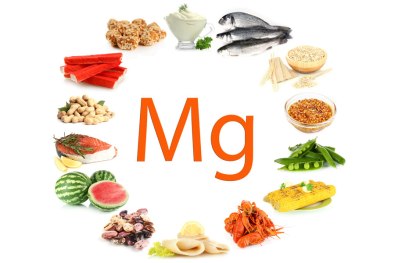
There’s no shortage of foods with Magnesium and below I’ll show you a few you can consume on a daily basis to increase your levels:
- Dark chocolate
- Avocados
- Nuts
- Seeds
- Fatty fish
- Bananas
- Legumes
Best Magnesium Supplements
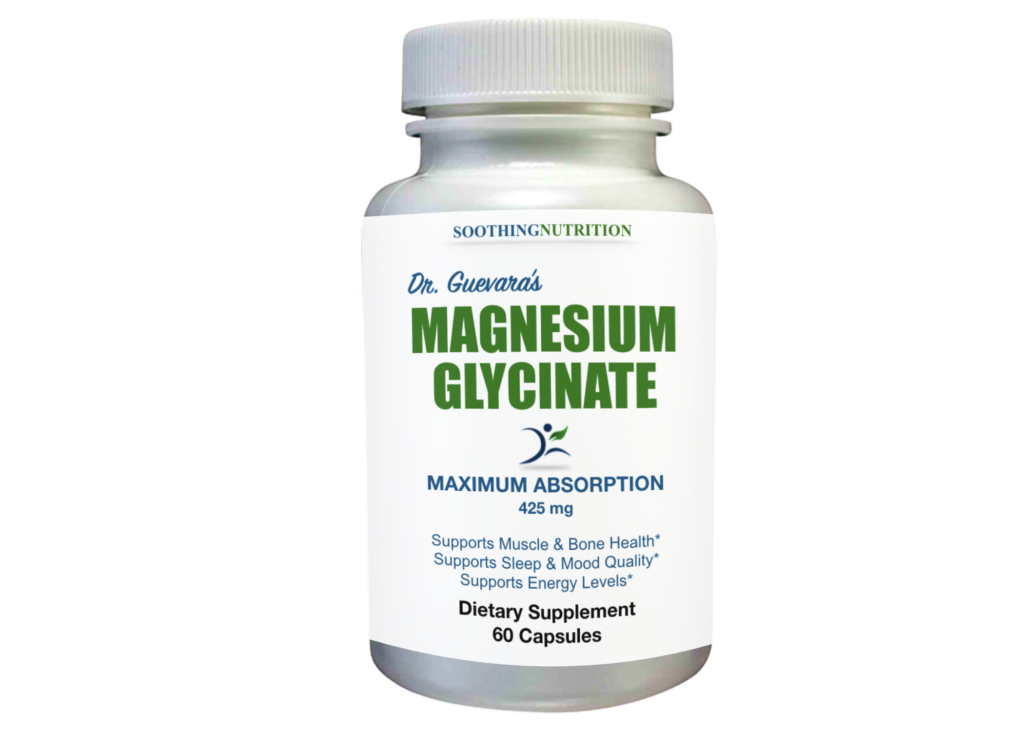
Although there’s no shortage of food with Magnesium, the quality of food and your body’s ability to absorb all the food you consume may affect your Magnesium levels. This is why I recommend supplementing with this important mineral on a daily basis.
There are many forms of Magnesium supplements in the market but they’re not all created equal and some are not absorbed well by the body. Some of the ones that are not absorbed well are used in laxatives since magnesium helps to regulate muscle contractions in the intestines. One example of these is Milk of Magnesia.
The best form of Magnesium I recommend for people with deficiencies is Magnesium Glycinate. Magnesium Glycinate is made up of Magnesium combined with the amino acid Glycine, and it’s one of the best absorbed forms of Magnesium. Most people are able to tolerate and absorb it without any stomach problems.
Now You Know About Magnesium
Now you understand the importance of this mineral for the body. Since it’s used in over 300 processes on a daily basis, anyone can benefit from adding a nutritional supplement to their diet.
If you’d like to purchase Magnesium Glycinate from our store and have it delivered to your doorstep, you can do so by clicking here.


